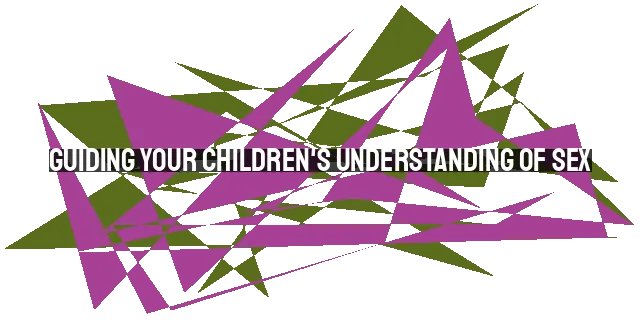Christian Hub
1 year ago
The Dynamic Relationship: God's Sovereignty and Human Responsibility
God's Sovereignty and Human Responsibility: Understanding the Dynamic Relationship
Have you ever wondered how God's sovereignty and human responsibility intertwine? It's a question that has puzzled theologians and believers alike for centuries. The concept of God's sovereignty refers to His complete control and authority over all things, while human responsibility refers to our accountability and choice in how we live our lives. These two aspects can sometimes seem contradictory, but they are both essential to understanding the nature of God and our role in His plan.
As we dive into this topic, let's explore three different perspectives that people often take when trying to understand the relationship between God's sovereignty and human responsibility.
1. God does nothing, and we do everything?
Some people live as if there is no God, taking full responsibility for their actions and decisions. They believe that everything in life is solely determined by their own efforts. This perspective can stem from a conviction that there is no higher power, or it can simply be a practical approach to solving problems. Many Christians unintentionally fall into this mindset, relying on their own abilities instead of seeking God's guidance and help.
However, this perspective fails to acknowledge the reality that God is actively involved in our lives, whether we recognize it or not. Psalm 127:1–2 reminds us that unless the Lord builds the house and watches over the city, our labor is in vain. In other words, our efforts are futile without God's intervention and blessing. We may be able to accomplish things on our own, but true flourishing and fulfillment can only come from a reliance on God.
2. God does everything, and we do nothing?
On the opposite end of the spectrum, some Christians embrace a passive approach, assuming that God will take care of everything. They might say things like, "I'll just let go and let God handle it." While it is important to trust in God's provision and sovereignty, this perspective can lead to laziness and a lack of personal responsibility.
Psalm 127 doesn't endorse laziness or inaction. Rather, it emphasizes the partnership between God and His people. We are called to actively engage in the work God has set before us, while simultaneously recognizing that it is ultimately God who brings about the desired outcome. John Calvin wisely noted that God does not want us to be idle or passive. Instead, He desires that we use the talents and resources He has given us to make a difference in the world.
3. God does everything, and we do something.
The third perspective strikes a balance between recognizing God's sovereignty and embracing our responsibility. It acknowledges that God is the ultimate source of power and authority, while also understanding that He chooses to work through His people. We are called to be active participants in God's plan, knowing that our efforts are only possible because of His grace and guidance.
An analogy that helps illustrate this dynamic relationship is a parent and a child working together on a project. Imagine a young child trying to inflate the tires of a stroller. Although the child may need the help and guidance of the parent, they are still actively involved in the process. As the parent pumps the air, the child's hands are on the pump handle, contributing to the task. The child experiences the satisfaction of knowing they have genuinely helped, even though their efforts are not equal to the parent's.
Likewise, when we partner with God in His work, we contribute our efforts and abilities, knowing that it is ultimately God who brings about the desired outcome. The apostle Paul understood this well when he said, "I worked harder than any of them, though it was not I, but the grace of God that is with me" (1 Corinthians 15:10). Our confidence and boldness in our work come from the knowledge that God is working in and through us.
So, how do we practically live out this balanced perspective? Here are a few key principles to consider:
1. Seek God's guidance and wisdom in all things. Recognize that your own understanding and efforts are limited, but God's wisdom is infinite (Proverbs 3:5-6).
2. Be diligent and faithful in your work. God calls us to be diligent in everything we do, whether it's our jobs, relationships, or serving in our communities. Our efforts are not in vain when they are done with a heart that seeks to honor God (Colossians 3:23).
3. Trust in God's sovereignty and provision. Remember that God is in control, even in the midst of uncertainty and challenges. Trust that He will provide for your needs and guide you through difficult times (Matthew 6:25-34).
4. Rely on the power of the Holy Spirit. We cannot accomplish God's work in our own strength. We need the Holy Spirit to empower and guide us every step of the way (Acts 1:8).
5. Embrace humility and surrender. Recognize that our abilities and accomplishments are gifts from God. Humbly surrender our plans and desires to His will, trusting that He knows what is best for us (James 4:10).
As we navigate the tension between God's sovereignty and human responsibility, it's important to remember that this is not just a philosophical or theological discussion. It has practical implications for our daily lives. When we understand and embrace the partnership between God's work and our own, we experience a deeper sense of purpose, fulfillment, and rest.
Let's not settle for a life of practical atheism, where we rely solely on our own abilities and efforts. Nor should we fall into passivity and laziness, leaving everything to God without taking responsibility for our actions. Instead, let us actively engage in the good works that God has prepared for us, knowing that He is with us every step of the way (Ephesians 2:10).
In conclusion, the relationship between God's sovereignty and human responsibility is a mystery that we may never fully comprehend. However, we can trust that God's ways are higher than ours and that He is working all things together for our good (Romans 8:28). As we navigate this tension, let us seek to honor God with our lives, relying on His guidance and power, while actively participating in His work in the world.
Have you ever wondered how God's sovereignty and human responsibility intertwine? It's a question that has puzzled theologians and believers alike for centuries. The concept of God's sovereignty refers to His complete control and authority over all things, while human responsibility refers to our accountability and choice in how we live our lives. These two aspects can sometimes seem contradictory, but they are both essential to understanding the nature of God and our role in His plan.
As we dive into this topic, let's explore three different perspectives that people often take when trying to understand the relationship between God's sovereignty and human responsibility.
1. God does nothing, and we do everything?
Some people live as if there is no God, taking full responsibility for their actions and decisions. They believe that everything in life is solely determined by their own efforts. This perspective can stem from a conviction that there is no higher power, or it can simply be a practical approach to solving problems. Many Christians unintentionally fall into this mindset, relying on their own abilities instead of seeking God's guidance and help.
However, this perspective fails to acknowledge the reality that God is actively involved in our lives, whether we recognize it or not. Psalm 127:1–2 reminds us that unless the Lord builds the house and watches over the city, our labor is in vain. In other words, our efforts are futile without God's intervention and blessing. We may be able to accomplish things on our own, but true flourishing and fulfillment can only come from a reliance on God.
2. God does everything, and we do nothing?
On the opposite end of the spectrum, some Christians embrace a passive approach, assuming that God will take care of everything. They might say things like, "I'll just let go and let God handle it." While it is important to trust in God's provision and sovereignty, this perspective can lead to laziness and a lack of personal responsibility.
Psalm 127 doesn't endorse laziness or inaction. Rather, it emphasizes the partnership between God and His people. We are called to actively engage in the work God has set before us, while simultaneously recognizing that it is ultimately God who brings about the desired outcome. John Calvin wisely noted that God does not want us to be idle or passive. Instead, He desires that we use the talents and resources He has given us to make a difference in the world.
3. God does everything, and we do something.
The third perspective strikes a balance between recognizing God's sovereignty and embracing our responsibility. It acknowledges that God is the ultimate source of power and authority, while also understanding that He chooses to work through His people. We are called to be active participants in God's plan, knowing that our efforts are only possible because of His grace and guidance.
An analogy that helps illustrate this dynamic relationship is a parent and a child working together on a project. Imagine a young child trying to inflate the tires of a stroller. Although the child may need the help and guidance of the parent, they are still actively involved in the process. As the parent pumps the air, the child's hands are on the pump handle, contributing to the task. The child experiences the satisfaction of knowing they have genuinely helped, even though their efforts are not equal to the parent's.
Likewise, when we partner with God in His work, we contribute our efforts and abilities, knowing that it is ultimately God who brings about the desired outcome. The apostle Paul understood this well when he said, "I worked harder than any of them, though it was not I, but the grace of God that is with me" (1 Corinthians 15:10). Our confidence and boldness in our work come from the knowledge that God is working in and through us.
So, how do we practically live out this balanced perspective? Here are a few key principles to consider:
1. Seek God's guidance and wisdom in all things. Recognize that your own understanding and efforts are limited, but God's wisdom is infinite (Proverbs 3:5-6).
2. Be diligent and faithful in your work. God calls us to be diligent in everything we do, whether it's our jobs, relationships, or serving in our communities. Our efforts are not in vain when they are done with a heart that seeks to honor God (Colossians 3:23).
3. Trust in God's sovereignty and provision. Remember that God is in control, even in the midst of uncertainty and challenges. Trust that He will provide for your needs and guide you through difficult times (Matthew 6:25-34).
4. Rely on the power of the Holy Spirit. We cannot accomplish God's work in our own strength. We need the Holy Spirit to empower and guide us every step of the way (Acts 1:8).
5. Embrace humility and surrender. Recognize that our abilities and accomplishments are gifts from God. Humbly surrender our plans and desires to His will, trusting that He knows what is best for us (James 4:10).
As we navigate the tension between God's sovereignty and human responsibility, it's important to remember that this is not just a philosophical or theological discussion. It has practical implications for our daily lives. When we understand and embrace the partnership between God's work and our own, we experience a deeper sense of purpose, fulfillment, and rest.
Let's not settle for a life of practical atheism, where we rely solely on our own abilities and efforts. Nor should we fall into passivity and laziness, leaving everything to God without taking responsibility for our actions. Instead, let us actively engage in the good works that God has prepared for us, knowing that He is with us every step of the way (Ephesians 2:10).
In conclusion, the relationship between God's sovereignty and human responsibility is a mystery that we may never fully comprehend. However, we can trust that God's ways are higher than ours and that He is working all things together for our good (Romans 8:28). As we navigate this tension, let us seek to honor God with our lives, relying on His guidance and power, while actively participating in His work in the world.



POST COMMENT
For post a new comment. You need to login first. Login
COMMENTS(0)
No Comment yet. Be the first :)